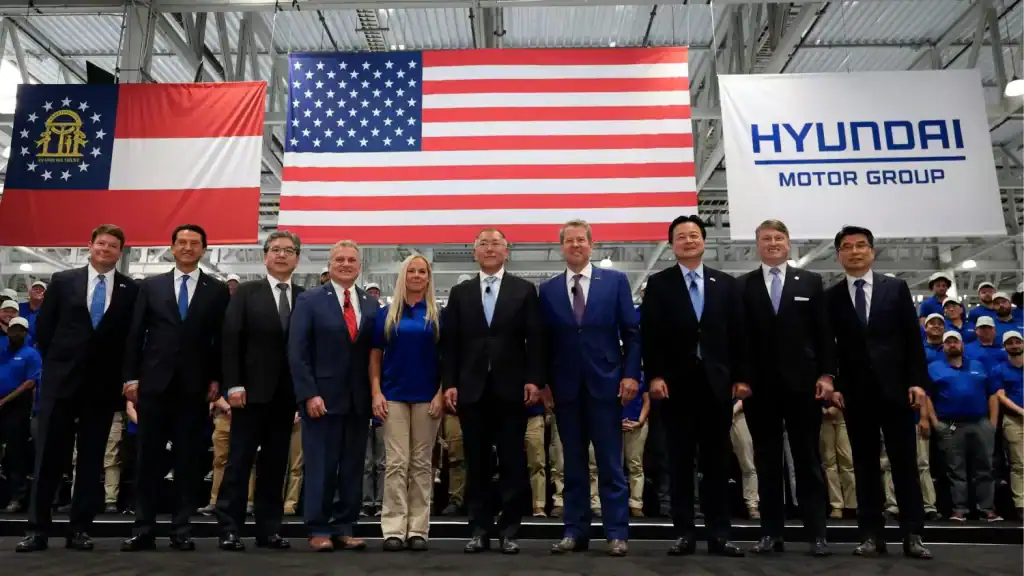
Federal agents conducted the operation after a “months-long investigation” into alleged unlawful employment and visa violations involving a vast network of subcontractors on site. Federal officials characterized it as a measured, legally supported action rather than a mass roundup.
While ICE detained hundreds, Hyundai emphasized that “none of those arrested were direct Hyundai Motor Company employees”. Instead, they were employed by subcontractors within the sprawling battery plant project.
Upon learning of the raid, Hyundai pledged to review its labor practices across its supply chain, emphasizing a “zero-tolerance policy” for violations and restated its commitment to compliance.
LG Energy Solution, Hyundai’s battery partner, also moved swiftly to suspend overseas business trips and dispatched senior HR staff to handle the situation while seeking to clarify the employment status of those detained
The arrests, most of whom were South Korean nationals, triggered immediate diplomatic concern. Seoul demanded explanations, calling the arrests “unfair violations” of its citizens’ rights.
South Korea and the U.S. reached an agreement: over 300 detained workers will be released and repatriated via charter flights once administrative steps are completed.
South Korea also blamed the public release of video footage depicting shackled detainees for straining relations, calling the timing “regrettable” amid broader trade talks and investment negotiations.
Disruption to the EV Battery Supply Chain
1. The Hyundai–LG battery plant represents a pivotal component in EV production in Georgia. The site was designed to supply batteries locally for Hyundai’s EV assembly, contributing to energy independence and supply chain resilience. The raid has paused construction and escalated uncertainty about the project’s timeline and viability.
2. Heightened Risk in Relying on Subcontracted Labor
The incident casts a shadow on reliance on complex subcontracting networks. Even with the best corporate policies, companies like Hyundai and LG may face serious fallout if oversight fails to catch undocumented labor or visa abuses. The industry may now need to shift toward stricter audits, increased use of verification systems like E-Verify, and tighter control over contractors.
3. Investor Confidence and Project Financing
Investors, especially in large-scale projects tied to foreign direct investment, may now demand higher scrutiny around labor compliance and geopolitical risk. Major automakers may feel skittish about entering fast-tracked expansions unless such risks are mitigated. The incident could slow the pace of global EV factory rollouts.
4. U.S. Immigration Policy and Industrial Strategy
The Trump administration signaled that similar enforcement actions may be expanded to other industries, calling out “businesses exploiting undocumented labor. The auto and EV industries—highly dependent on large workforces, especially in regions like the Southeast—must now contend with a policy environment where workplace raids may become routine.
5. Diplomatic and Trade Tensions
The incident occurred amid sensitive negotiations between the U.S. and South Korea on tariffs and investment. It risks souring the climate for cooperation on clean energy, potentially spooking other foreign investors and complicating trilateral industrial collaborations